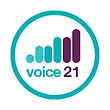

Literacy
At Fareham Academy we recognise the importance of reading, writing and speaking; not just at school but in society, to be successful in everything our students choose to do. Students are encouraged to recognise that they are literate in lots of subjects; we work with them to read, write and talk like an expert.
Our staff promote the highest standards of literacy through their own subject passions and teaching, our tutor reading programme and library to name just a few. Literacy is a thread that runs through everything we do at Fareham Academy and extends out into our wider community to support literacy at home.
Encouraging Literacy in Young People
In 2023, the National Literacy Trust reported that 56% of young people do not enjoy reading in their free time. Reading regularly outside of school is shown to have a positive impact on academic success in all subjects. Reading can take many forms beyond a traditional book, for example; magazines, reference books, blogs, websites, comics and such. Talk to young people about what they read, what it’s about, whether they recommend it, do they understand it, are there any moral messages?
Young People and Their Phones
Students are experts in ‘scroller reading’ on Instagram, Whatsapp and this type of reading is just as important to recognise. Reading through online apps builds social and cultural awareness and understanding. Talk openly about what they are reading online, ask them questions like what’s making them laugh, what’s annoying them. As adults we often don’t understand some of the things we are reading online, so ask for their support and involve them in what you are reading. You may be struggling with acronyms or the working of an app.
Support Us, Supporting Them
Reinforce to young people how important reading is for their future. Reading has been shown to improve exam outcomes by up to 4 grades. Students who read around their subjects are more likely to achieve success in future employment. If they find reading a struggle, explain that it is like any other skill and requires practice and time.
Spelling Matters
Spelling is important, too. Exposing yourself to a wide range of vocabulary is the best way to improve spelling. There are also quick ways to improve the basics.
-
Mnemonics: Using related pieces of information with images, sentences, rhymes, or acronyms to remember things.
-
ISLAND – Is land surrounded by water.
-
RHYTHM – Rhythm helps your two hips move.
-
PHYSICAL – Pat had yummy strawberry ice cream and lollipops.
-
These can even help with double letters and similar words. For example:
-
When spelling "dessert," to avoid confusion with "desert," you could say: "Strawberry shortcake (double S) is a dessert."
Word Origins
Understanding where a word has come from can often help make it stick in our mind. This can be done through lists or by exploring the word more widely. Here are some interesting examples:
-
Iceberg originates from Germany ("Eisberg").
-
Broccoli is originally from Italy.
Pronunciation
To know how to spell a word, focus on its pronunciation. The way a word is spoken can often help with its spelling. For example:
-
The common spelling rule: "The silent e, at the end, makes the vowel say its name." This means that an e at the end of "dive" makes the "i" sound like "ai." Other words following this rule include: cube, tube, kite, bite, fine, and code.
Fareham Academy Dictionary Series
To support your learning at home, we have created the Fareham Academy Dictionary Series. The first dictionary, found below, focuses on common command words (tier 2 words). These words are often found in exam questions, and it is important for young people to understand their meanings. You can use this dictionary with them to support their continued learning journey at home.
In addition to this, each subject curriculum page contains a subject-specific dictionary. These include subject-specific words (tier 3 words) and should be used by young people and their families to support extended learning at home.
Words & Phonetics
Definitions
Examples
No words found.


